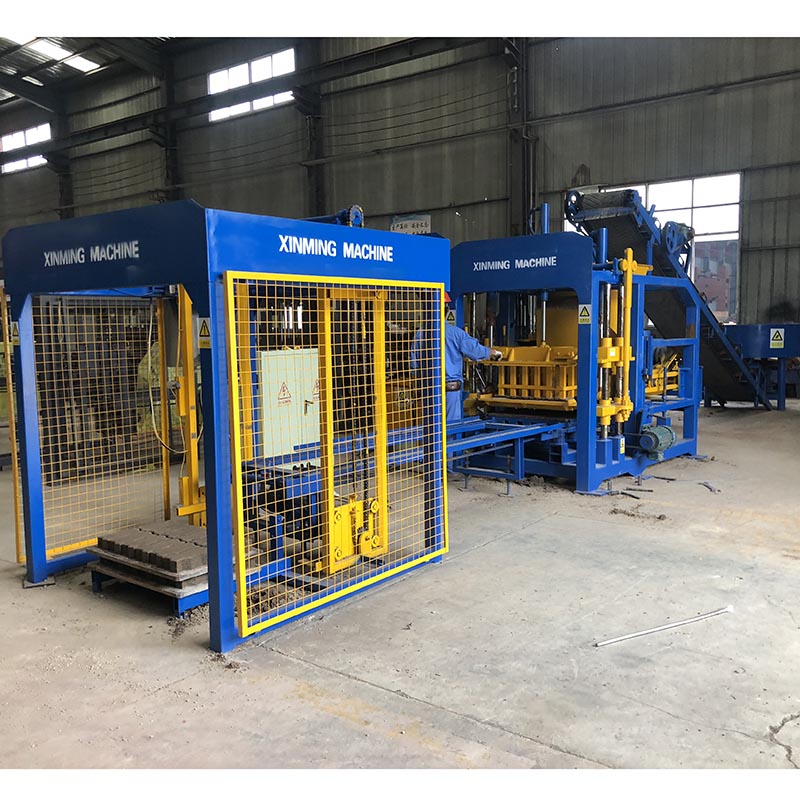
Image source:Aiweiblockmachine
Introduction
South Africa’s dynamic construction industry stands as a testament to its rapid urbanization, infrastructural development, and economic growth. At the heart of this expansive landscape lies the brick making machine industry, a vital pillar that provides the building blocks essential for the nation’s progress. In this article, we delve deep into the intricate web of the brick making machine industry in South Africa, exploring its current state, key players, technological advancements, and the pivotal role it plays in the country’s construction sector.
The Building Blocks: Understanding the Industry Landscape
The brick making machine industry in South Africa serves as a linchpin that bridges the gap between raw materials and construction projects. This industry encompasses the manufacturing, distribution, and maintenance of various types of brick making machines, each catering to specific needs of construction businesses and projects.
South Africa’s diverse construction landscape, comprising residential, commercial, and infrastructure sectors, has created a demand for a wide range of bricks with varying sizes, shapes, and strengths. As a result, brick making machines in the country need to be adaptable and innovative to meet these evolving demands.
Market Trends and Demand Dynamics
The demand for bricks and brick making machines in South Africa is closely tied to the overall construction activity in the country. As urbanization continues and the need for housing, commercial spaces, and public infrastructure grows, the brick making machine industry experiences consistent demand.
In recent years, there has been a noticeable shift towards sustainable and eco-friendly construction practices. This has driven the demand for brick making machines that can produce environmentally conscious building materials, such as interlocking bricks, which reduce the need for cement mortar and enhance insulation properties. Additionally, the need for automation and higher production capacities has led to increased interest in fully automatic brick making machines.
Key Players and Competitors
The brick making machine industry in South Africa is marked by the presence of both local manufacturers and international players. Local manufacturers have the advantage of understanding the unique demands of the South African construction industry and tailoring their products to suit local conditions. These manufacturers often provide comprehensive after-sales services and technical support, which can be crucial for businesses investing in brick making machinery.
International players, on the other hand, bring global expertise, advanced technology, and access to a wider range of resources. Their entry into the South African market fosters healthy competition and encourages local manufacturers to innovate and improve their offerings.
Technological Advancements: Transforming the Landscape
The brick making machine industry in South Africa has witnessed remarkable technological advancements that have transformed the way bricks are produced. These advancements aim to enhance efficiency, improve quality, and align with sustainable construction practices. Some notable technological trends include:
- Automation: Automated brick making machines have gained popularity due to their ability to streamline the entire production process. These machines can handle tasks from raw material mixing to brick stacking, minimizing the need for manual labor and increasing production efficiency.
- Interlocking Brick Technology: Interlocking bricks have become a sought-after solution in South Africa due to their speed of construction, reduced need for cement, and energy-efficient properties. Brick making machines designed for interlocking bricks have gained prominence, contributing to sustainable construction practices.
- Energy Efficiency: Manufacturers have been focusing on creating energy-efficient brick making machines by adopting technologies that optimize power consumption, such as utilizing variable frequency drives and energy-efficient kilns.
- Digital Integration: Digital technologies, including IoT sensors and data analytics, are being integrated into brick making machines to monitor and optimize production processes. This results in improved quality control, reduced wastage, and enhanced operational efficiency.
Challenges and Opportunities
While the brick making machine industry in South Africa is positioned for growth, it also faces its fair share of challenges. These challenges include:
- Access to Technology: Smaller manufacturers and businesses might struggle to access the latest brick making technologies due to high costs and limited resources.
- Skills Gap: The industry requires skilled technicians and operators to handle advanced brick making machinery. Bridging the skills gap through training programs is crucial.
- Sustainability Pressure: The demand for sustainable building materials has pushed brick making machine manufacturers to innovate and develop eco-friendly solutions that meet regulatory standards.
- Competition: The presence of both local and international manufacturers means intense competition, pushing businesses to continuously improve their products and services.
On the flip side, these challenges also bring opportunities for growth and innovation. By addressing these challenges head-on, the industry can create a more robust and sustainable ecosystem that caters to the diverse needs of South Africa’s construction sector.
Conclusion: Building the Future Brick by Brick
The brick making machine industry in South Africa stands as a testament to the nation’s commitment to construction excellence and sustainable development. Its role in providing essential building materials while embracing technological advancements highlights the industry’s adaptability and resilience. As the country’s construction landscape continues to evolve, the brick making machine industry will play an ever-increasing role in shaping the skylines of cities, the foundations of infrastructure, and the future of South Africa’s built environment.
